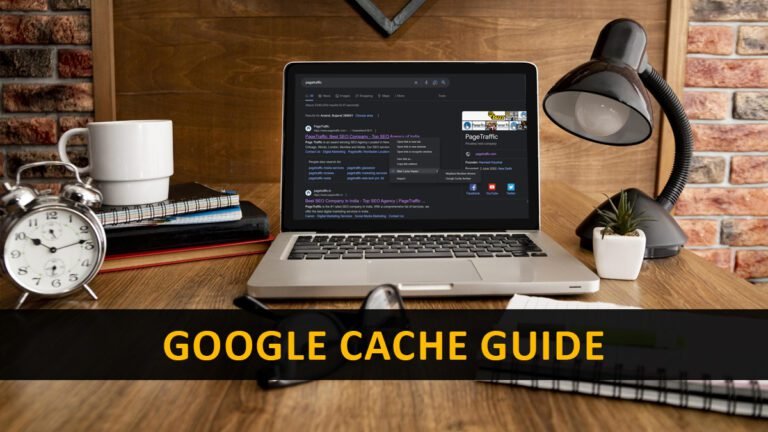The Ultimate Guide to Hiding Webpages from Indexation provides an accurate and concise roadmap for concealing webpages from search engine visibility. This guide outlines effective strategies to prevent search engines from indexing specific webpages, enabling website owners to control what content is accessible to search engine users.
With step-by-step instructions and relevant tips, this guide empowers website owners to optimize their online presence and protect sensitive information from being easily discovered by search engines. Whether you have confidential data, temporary content, or irrelevant pages that you want to exclude from search results, this ultimate guide equips you with the knowledge and tools to successfully hide webpages from indexation and maintain online privacy.
Why Hide Webpages From Indexation Matters
The Ultimate Guide to Hiding Webpages from Indexation
Protecting sensitive information from public access
In today’s digital landscape, protecting sensitive information from public access is crucial for businesses and individuals alike. Hiding webpages from indexation helps safeguard confidential data, such as personal details, financial information, and proprietary knowledge, from falling into the wrong hands. By preventing search engines from crawling and indexing these pages, the risk of unauthorized access or data breaches is significantly reduced. This measure adds an extra layer of security to sensitive content and ensures the privacy and confidentiality of the information.
Preventing duplicate content issues
Another important reason to hide webpages from indexation is to prevent duplicate content issues. When search engines index duplicate content, it can negatively impact the website’s ranking and search visibility. By hiding specific pages that contain duplicate or similar content, website owners can avoid diluting their search engine optimization efforts. This practice helps maintain a website’s relevance and authority in the eyes of search engines, ultimately leading to higher rankings and improved organic traffic.
Maintaining control over information visibility
Controlling the visibility of information is essential for various reasons. Businesses may have certain pages that are meant for internal use only or restricted to specific user groups. Similarly, individuals may wish to limit access to personal pages or content. By hiding webpages from indexation, website owners can maintain exclusive control over the visibility of their content, ensuring it is only accessible to the intended audience. This level of control helps protect sensitive information, maintain confidentiality, and enhance the overall user experience.
Importance Of Webpage Indexation
Webpage indexation plays a crucial role in determining the visibility and rankings of your website on search engines. Understanding how search engines index webpages is essential to effectively optimize your website for better search engine rankings.
When a search engine crawls and indexes your webpages, it determines the relevance, quality, and authority of your content. Indexation impacts how search engines perceive and prioritize your website in search results.
Identifying scenarios where hiding webpages is crucial is also important. There are situations where you might want to prevent certain webpages from being indexed, such as duplicate content, sensitive information, or temporary pages.
| Impact of indexation on search engine rankings | Identifying scenarios where hiding webpages is crucial |
|---|---|
| Proper indexation enhances visibility and organic traffic | Hiding duplicate content to avoid penalties |
| High-quality indexed pages boost website authority | Protecting sensitive information from being exposed |
| Indexed pages improve website relevance in search results | Hiding temporary pages until they are fully ready for public viewing |
How Search Engines Crawl And Index Webpages
Search engines use a process called crawling to discover and analyze webpages. Crawling is followed by indexing, which is the process of storing and organizing these webpages in a database. It’s important to understand the difference between crawling and indexing when it comes to hiding webpages from search engine indexation.
One common method is using a robots.txt file, which tells search engine crawlers which pages and files to exclude from crawling. By specifying URLs or directories in the robots.txt file, you can prevent search engines from accessing certain webpages. However, it’s important to note that while search engines won’t crawl these pages, they may still be aware of their existence due to external links and other factors.
Another method is utilizing the ‘noindex’ meta tag. By including this meta tag within the HTML code of a webpage, you can indicate to search engines that the page should not be indexed. This can be particularly useful for preventing duplicate content, confidential information, or temporary pages from appearing in search engine results. It’s important to ensure that the ‘noindex’ tag is implemented correctly to avoid any unintended consequences.
Techniques To Hide Webpages From Indexation
The Ultimate Guide to Hiding Webpages from Indexation
Techniques to Hide Webpages from Indexation:
| Technique | Description |
|---|---|
| Implementing the ‘noindex’ directive in robots.txt | By including the ‘noindex’ directive in the robots.txt file, you can instruct search engines not to index specific webpages. This technique is useful for blocking entire sections or directories of a website. |
| Utilizing the ‘noindex’ meta tag in HTML | Using the ‘noindex’ meta tag in the HTML code of a webpage allows you to specify that particular page should not be indexed by search engines. This method is helpful when you want to hide individual pages. |
| Conditional hiding with ‘noindex’ in JavaScript | If you need to dynamically hide a webpage based on certain conditions, you can leverage JavaScript to add the ‘noindex’ attribute to the page’s HTML. This approach is suitable when you want to hide specific content from search engines based on user behavior or other factors. |
Best Practices For Hiding Webpages From Indexation
Hiding webpages from indexation is crucial for maintaining the privacy and security of your website. There are several best practices you can implement to ensure that certain webpages are hidden from search engine crawlers. One effective method is to limit the availability of content through user authentication. By requiring users to log in before accessing specific pages, you can prevent search engines from indexing them. Another approach is to utilize password protection for sensitive pages. This adds an extra layer of security and ensures that only authorized users can view the content.
In addition to user authentication and password protection, implementing canonical tags is also highly recommended. These tags indicate the preferred version of a webpage, and help prevent duplicate content issues that can arise across different URLs. By specifying the canonical URL, you ensure that search engines understand which version of the page should be indexed.
Potential Issues And Considerations
|
Balancing privacy concerns with SEO objectives:
|
|
Handling exclusion of pages without affecting user experience:
|
|
Impact on search engine rankings and visibility:
|
Advanced Techniques For Webpage Hiding
Leveraging the ‘disallow’ directive in robots.txt
One effective way to prevent certain webpages from being indexed by search engines is to use the ‘disallow’ directive in the robots.txt file. By specifying the URLs that should not be crawled, you can ensure that they are hidden from search engine results.
Meta robots tag customization
Another method is to customize the meta robots tag on your webpages. By including the ‘noindex’ and ‘nofollow’ directives, you signal search engines not to index or follow the links on those pages. This approach provides granular control over which pages are hidden.
Implementing X-Robots-Tag HTTP header for server-side control
Additionally, you can use the X-Robots-Tag HTTP header to control indexation. Depending on your server’s capabilities, you can set specific directives such as ‘noindex’ and ‘nofollow’ for individual webpages or entire sections of your site. This method provides a flexible and efficient way to prevent indexation.
While each technique offers its own advantages, understanding when and how to use them allows you to effectively hide webpages from indexation, ensuring search engines do not display content that you wish to keep hidden.
Monitoring And Verifying Hidden Webpages
The process of hiding webpages from indexation requires vigilant monitoring and verification to ensure their invisibility to search engines. Utilizing search engine tools for indexation verification is an effective strategy. These tools enable webmasters to gain insights into which pages have been indexed by search engines. Additionally, they provide a means of detecting accidental indexation, which can occur despite intentional efforts to hide specific pages.
Regular monitoring is crucial to maintaining the desired indexation status. By regularly checking the indexation status of hidden webpages, webmasters can identify any discrepancies and rectify them promptly. This proactive approach helps in avoiding any unintended exposure of hidden content by search engines.
| Methods for detecting accidental indexation |
|---|
| Method 1: Utilize search engine console tools to inspect URL indexation. |
| Method 2: Conduct manual searches on search engines using specific queries related to hidden webpages. |
| Method 3: Monitor server logs for any search engine bot access to hidden pages. |
By following these steps and making regular checks, webmasters can ensure that hidden webpages remain truly hidden from search engine indexation and, thus, maintain the desired level of privacy.
Frequently Asked Questions Of The Ultimate Guide To Hiding Webpages From Indexation
How Do You Exclude A Web Page From Indexing?
To exclude a web page from indexing, you can use the “noindex” meta tag in the page’s HTML code. This tag tells search engines not to include the page in their search results. Make sure to add the tag within thesection of the page.
How Do I Hide Pages From Seo?
To hide pages from SEO, you can use the “noindex” meta tag, disallow them in the robots. txt file, or use password protection. These methods prevent search engines from indexing and displaying the pages in search results. Remember to implement these techniques correctly to ensure the desired outcome.
How Do I Avoid Google Indexing Pages?
To avoid Google indexing pages, follow these guidelines: 1. Add a “noindex” meta tag to the page’s HTML code. 2. Set up robots. txt file to disallow indexing of certain pages. 3. Use URL parameters to indicate to Google not to index specific pages.
4. Employ the “nofollow” attribute on links pointing to pages you don’t want indexed. 5. Use Google Search Console to remove indexed pages.
Do You Know How Websites Prevent Certain Pages Or Directories From Being Indexed By Search Engines?
Websites prevent pages or directories from being indexed by search engines through the use of a specific file called robots. txt. This file tells search engine bots which pages to exclude from indexing.
To sum up, understanding how to hide webpages from indexation is crucial to maintain control over your website’s visibility in search engines. By employing various techniques such as using meta tags, robots. txt files, and noindex tags, you can prevent specific pages from being indexed and avoid duplicate content issues.
Remember to regularly review and update your techniques as search engine algorithms continuously evolve. Mastering these methods will help you optimize your website’s SEO performance and enhance its competitiveness in the online landscape.

I have been working as an SEO Expert in Bangladesh for a long time and now providing the best SEO Service in Bangladesh. With the approach to Semantic SEO that eschews superfluity. I can get your business web page at the top of the SERP list. Using the latest digital marketing trends, I can enhance your online visibility and drive more website traffic.

